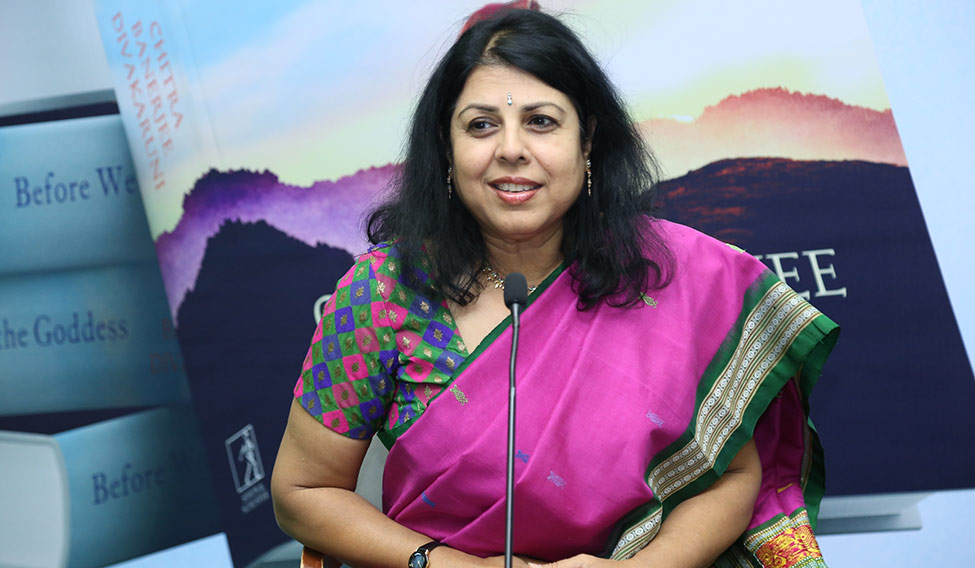She braves a chilly Delhi winter morning with a black shawl over an elegant silk sari. Chitra Banerjee Divakaruni’s smiling face radiating warmth could be attributed to regular yoga practice. The 60-year-old author-professor visited Delhi and the recently concluded Jaipur Literature Festival to talk about her novel, Before We Visit The Goddess, which is about three generations of immigrants (a contentious point in the US currently!), a family of strong women set between two countries.
In a time of heightened nationalism, how does one look at the genre of Indian authors writing in English? “They are a large category with lots of stories,” she is quick to explain. “There are people who celebrate contemporary stories, serious writers who cover a range of diversity and cultural experiences. It’s unhealthy to limit what a writer should be or what literature should entail. There’s a lot of experimenting happening, with writers writing in vernacular languages, which reveal India’s complexity. They are willing to show darker sides and go unconventional... basically characters that show that we are human.”
So, how does one locate the three women across generations in her book in the context of the current debate on feminism? “I see them as strong women in their individual ways, responding to life and social challenges differently. The idea was to show women in all their wonderful complexity. That a woman has to be perfect and pure is an unfair burden. These are characters that readers can relate to and enjoy, accepting their own complexity in the process.”
Divakaruni also intends for the male readers to accept women in healthier ways. “It’s a pro-woman stance. Let the woman be herself and make her choices, don’t hold her to unrealistic standards that leads to suppression. America and India are trying to break through this. It’s about a human agenda, more than a feminist one, where it’s good for both genders to coexist.”
Divakaruni’s novel The Palace of Illusions was a rendition of the Mahabharat from the point of view of Draupadi. Her next novel will be from the perspective of Sita. “Most people haven’t read the original text [the Ramayan]. Sita was a strong woman who made big decisions. I see her as a feminist heroine.” She asserts that she is not changing facts, but rather interpreting what she thinks the text means.
Not the proverbial reclusive writer, Divakaruni uses social media actively. “I like to discuss books and writing tips, and connect with readers in other countries. When people I haven’t met tell me what my work means to them, it makes me a better writer.”
How does contemporary politics influence her work? “There are a lot of wonderful things happening in India; it’s growing and changing... an energetic youth who are hungry for material that makes them think. With the new Trump regime [in the US], the diversity of human experience continues to be valued. The immigrant story, as I write, is becoming politically important. Nationalism shouldn’t shut out people on the margins. Their stories are valuable. It’s the writer’s job to tell these stories in a powerful way. Writing from the margins in India and America is more important now.”







